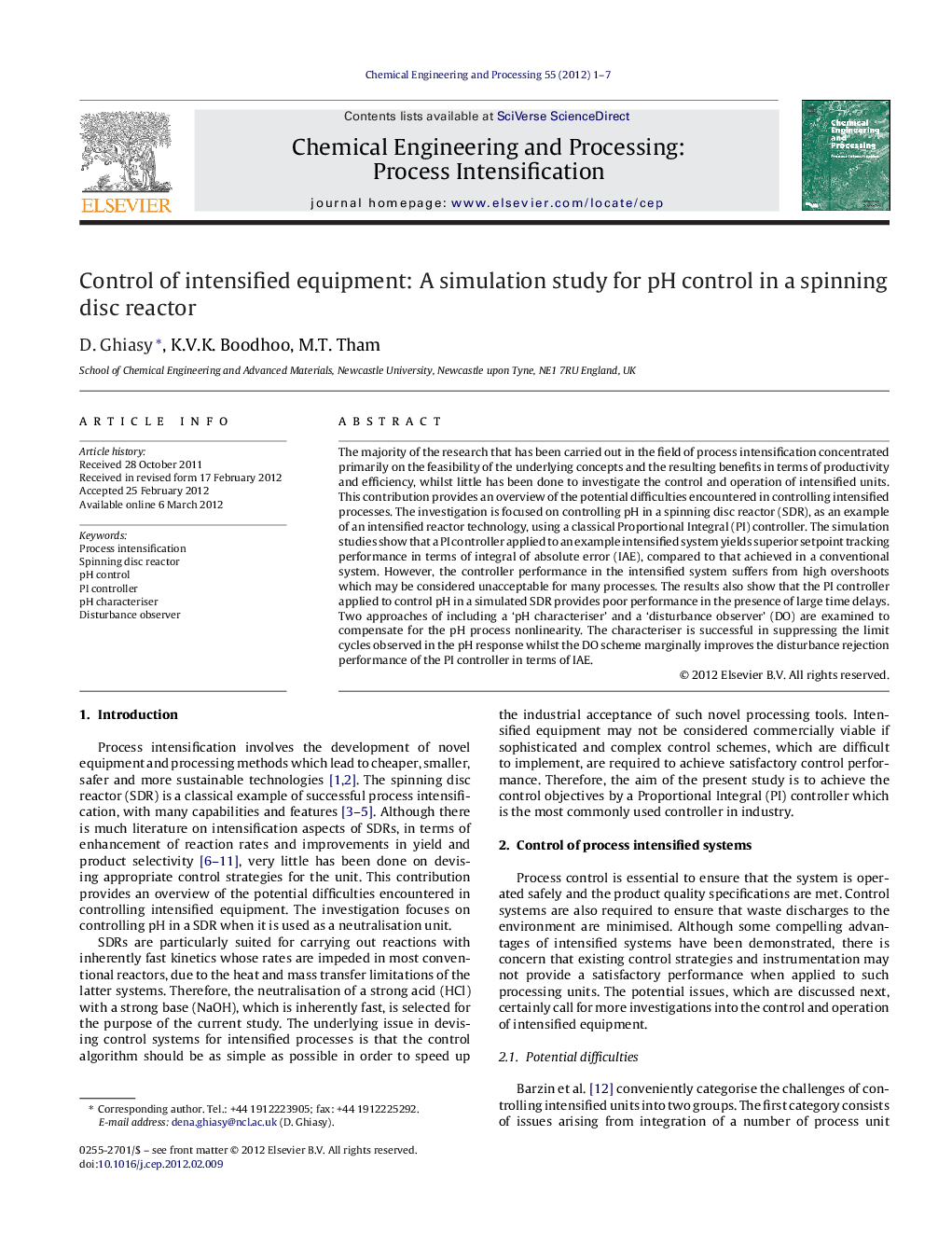| Article ID | Journal | Published Year | Pages | File Type |
|---|---|---|---|---|
| 687480 | Chemical Engineering and Processing: Process Intensification | 2012 | 7 Pages |
The majority of the research that has been carried out in the field of process intensification concentrated primarily on the feasibility of the underlying concepts and the resulting benefits in terms of productivity and efficiency, whilst little has been done to investigate the control and operation of intensified units. This contribution provides an overview of the potential difficulties encountered in controlling intensified processes. The investigation is focused on controlling pH in a spinning disc reactor (SDR), as an example of an intensified reactor technology, using a classical Proportional Integral (PI) controller. The simulation studies show that a PI controller applied to an example intensified system yields superior setpoint tracking performance in terms of integral of absolute error (IAE), compared to that achieved in a conventional system. However, the controller performance in the intensified system suffers from high overshoots which may be considered unacceptable for many processes. The results also show that the PI controller applied to control pH in a simulated SDR provides poor performance in the presence of large time delays. Two approaches of including a ‘pH characteriser’ and a ‘disturbance observer’ (DO) are examined to compensate for the pH process nonlinearity. The characteriser is successful in suppressing the limit cycles observed in the pH response whilst the DO scheme marginally improves the disturbance rejection performance of the PI controller in terms of IAE.
► We outlined the challenges that may be encountered in control of intensified units. ► The difficulties are due to fast dynamics and more complexity of intensified units. ► pH control in a SDR was studied based on an empirically determined process model. ► The performance of a PI controller deteriorated in presence of large time delays. ► Control performance was improved by including 2 methods of nonlinear compensation.
